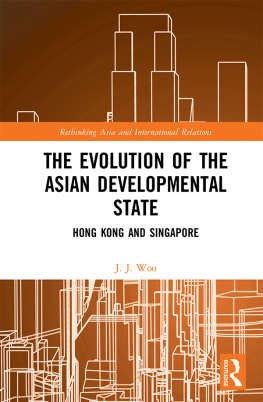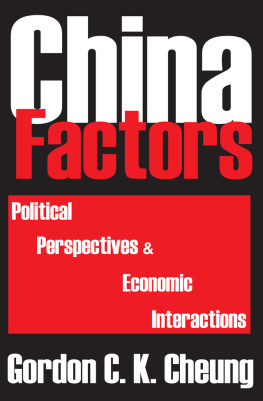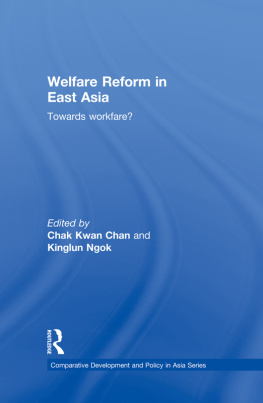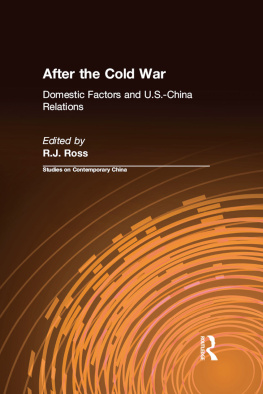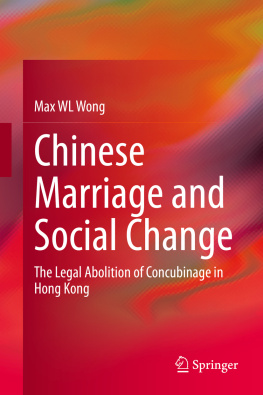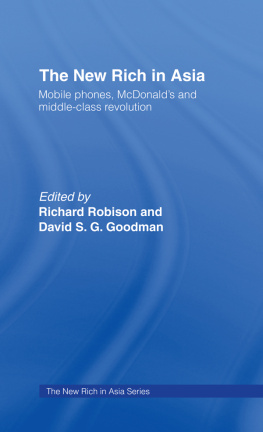
Institutions and Economic Growth in Asia
This book explores the role of institutions in economic growth, looking in particular at specific Asian countries and at particular cities within those countries. It considers a wide range of factors besides institutions, including the law, cultural factors and overall government arrangements. The differences between the countries studied are highlighted, and the impact of these differences assessed: the impact of English common law on arrangements in Hong Kong, Singapore and Malaysia; sharia law in Malaysia; the differing lengths of time of colonial rule; the extent to which Chinese family businesses control an economy. Also studied are the degree to which the law is effectively applied, and a range of other social, economic and cultural factors. The books conclusions as to which factors have the greatest impact will be of considerable interest to economists of Asia and those interested in economic growth more widely.
Flora Huang is Senior Lecturer in Law at the University of Essex, UK.
Horace Yeung is a Lecturer in Commercial Law at the University of Leicester, UK.
Routledge Economic Growth and Development Series
Series Editor
Linda Yueh
Fellow by Special Election in Economics at St Edmund Hall and Director of the China Growth Centre, University of Oxford, UK.
The aim of the series is to publish a series of books that applies rigorous economic analysis to the field of economic growth and development. The scope includes regional and country-specific studies, as well as cross-country comparisons, to examine the evidence surrounding the pressing and interesting questions on the growth prospects of developed and developing countries.
Chinese Companies and the Hong Kong Stock Market
Flora Xiao Huang and Horace Yeung
Chinas Securities Market
Towards Efficient Regulation
Jing Bian
Institutions and Economic Growth in Asia
The Case of Mainland China, Hong Kong, Singapore and Malaysia
Flora Huang and Horace Yeung
Institutions and Economic Growth in Asia
The Case of Mainland China, Hong Kong, Singapore and Malaysia
Flora Huang and Horace Yeung
First published 2018
by Routledge
2 Park Square, Milton Park, Abingdon, Oxon OX14 4RN
and by Routledge
711 Third Avenue, New York, NY 10017
Routledge is an imprint of the Taylor & Francis Group, an informa business
2018 Flora Huang and Horace Yeung
The right of Flora Huang and Horace Yeung to be identified as authors of this work has been asserted by them in accordance with sections 77 and 78 of the Copyright, Designs and Patents Act 1988.
All rights reserved. No part of this book may be reprinted or reproduced or utilised in any form or by any electronic, mechanical, or other means, now known or hereafter invented, including photocopying and recording, or in any information storage or retrieval system, without permission in writing from the publishers.
Trademark notice: Product or corporate names may be trademarks or registered trademarks, and are used only for identification and explanation without intent to infringe.
British Library Cataloguing-in-Publication Data
A catalogue record for this book is available from the British Library
Library of Congress Cataloging-in-Publication Data
A catalog record for this book has been requested
ISBN: 978-1-138-69973-1 (hbk)
ISBN: 978-1-315-51611-0 (ebk)
Typeset in Times New Roman
by Wearset Ltd, Boldon, Tyne and Wear
This book is dedicated to Beverley, Lilyanna, and our parents.This book project is a natural outcome of two seemingly separate and yet interconnected projects, namely Growth without Institutions: The Qianhai Experiment (funded by Sino-British Fellowship Trust, 1 April 2013 to 31 March 2015, Project Ref: RL10G0217) and A Tale of Three Cities Unravelling the Common Law Advantage (funded by the British Academy/Leverhulme Trust, 1 September 2013 to 31 August 2015, Project Ref: RL10G0243). By adding to and consolidating the findings of these two projects, this book presents a comprehensive, systematic and holistic analysis regarding the growth story of five Asian commercial and financial centres (Singapore, Kuala Lumpur, Hong Kong, Shanghai and Shenzhen) across four economies/jurisdictions (Singapore, Malaysia, Hong Kong and China).
With the generous financial support of the aforementioned funding bodies, we managed to travel to Asia and take advantage of the excellent research facilities at, in no particular order, the Universities of Hong Kong and Malaya, the Chinese University of Hong Kong, the National University of Singapore, East China Normal University, China University of Political Science and Law, Hong Kong Central Library and National Library Singapore. We must also acknowledge the support given by our home institutions, namely the Universities of Essex and Leicester, especially for their generous academic study leave policy, which allowed us to spend some precious time away from teaching to complete this project.
Furthermore, Flora would like to acknowledge the financial support given by the Erasmus+ Programme of the European Union to facilitate her visit to the University of Macau to conduct some follow-up research for this book.
Since 2013, we have benefited from the discussions with our colleagues and friends regarding various parts of this book, through different meetings, seminars and conferences. We would like to thank all of them collectively, to avoid the risk of missing any one of the important names. Meanwhile, we must thank certain people individually because of their substantial contributions to this book. The foremost is the editor of the book series, Linda Yueh, who participated in a conference organised by us about the Chinese financial markets. This conference was generously supported by the Newton Fund. The insights given by Linda and other speakers have helped us to enrich the perspectives and parts of the book on China. Moreover, we must thank the team at Routledge and its associates, including Peter Sowden, Lucy McClune, Leela Vathenen, Steve Turrington, and Matt Deacon, for guiding us through various stages of the book production process.
Finally, the views and opinions expressed in this book are our own and do not reflect the position of our home institutions, funders and publisher. Also, any errors in the work remain our own responsibility.
FH and HY
October 2017
| 1MDB | 1Malaysia Development Berhad |
| ACCA | Association of Chartered Certified Accountants |
| ACFTA | ASEAN-China Free Trade Agreement |
| AEC | ASEAN Economic Community |
| AFTA | ASEAN Free Trade Area |
| APEC | Asia-Pacific Economic Cooperation |
| ASEAN | Association of Southeast Asian Nations |
| BTA | bilateral trade agreement |
| CAD | Commercial Affairs Department |
| CAO | China Aviation Oil |
| CEO | chief executive officer |


